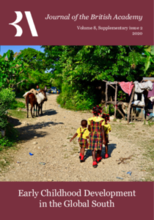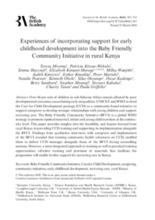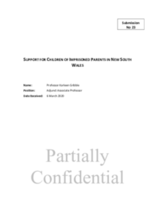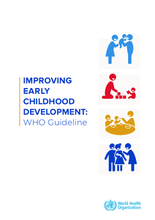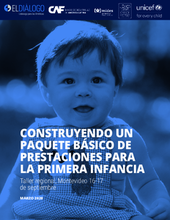Displaying 61 - 70 of 496
The authors of this article review the evidence base on short- and long-term risks for children during early childhood development (ECD, defining this from prenatal to 8 years of age) and present evidence-based mitigating program and policy actions that may reduce these risks.
The author argues that early childhood education interventions for OVC should be a priority of government since quality education and care programs in the early years can enhance the possibility of breaking the cycle of inequity in the lives of OVC and positively contribute to the economy of the country.
Using 20-year follow-up data from a unique natural experiment – the large scale adoption of children exposed to extreme deprivation in Romanian institutions in the 1980s – the authors of this paper examined, for the first time, whether such deficits are still present in adulthood and whether they are associated with deprivation-related symptoms of attention-deficit/hyperactivity disorder (ADHD) and autism spectrum disorder (ASD).
This supplementary issue relates to a sequence of activities the British Academy has supported since 2015 in relation to the bringing together of a range of disciplinary perspectives on early childhood development.
This paper provides insights into the feasibility and lessons learned from rural Kenya in providing Care for Child Development (CCD) training and supporting its implementation alongside the Baby Friendly Community Initiative (BFCI).
In this Submission to the Inquiry into Support for Children of Imprisoned Parents, Karleen Gribble, Adjunct Associate Professor in the School of Nursing and Midwifery at Western Sydney University, comments on "the situation of infants and young children whose mothers are incarcerated and the support or undermining of their health and wellbeing in the justice system."
This guideline provides direction for strengthening policies and programmes to better address early childhood development.
El Diálogo Interamericano y UNICEF han conformado una alianza orientada a fortalecer la construcción y la implementación de políticas integrales de la primera infancia basada en evidencia, en los países de la región. En esa línea, se convocó un Taller regional en Uruguay. Este documento presenta los principales elementos destacados y discutidos en la reunión y los aspectos en los cuales hay un mayor acuerdo entre los expertos participantes del taller.
In this study, autobiographical memory tests, working memory, and a depressive symptom assessment were administered to 48 adolescents in care with a history of maltreatment (22 abused and 26 neglected) without mental disorder, who had been removed from their family and were living in residential child care, and to 61 adolescents nonmaltreated who had never been placed in care.
This episode of The Brain Architects explores what “toxic stress” means, and what we can do about it.

